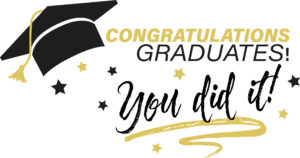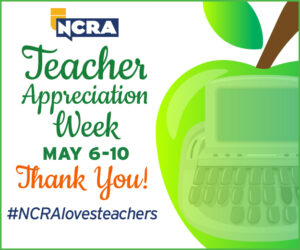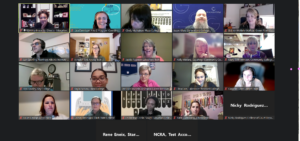I often hear fellow students remark that they want to find a mentor. Some of them have asked me how I found mine, and they almost always have some confusion about the nature of the relationship.
It seemed like I lucked out in my pursuit of a mentor, but looking back, I actually made my own good luck. I noticed an email from a local reporter hanging on the board in my school lab. The reporter was willing to have students sit with her. I thought if she was willing to let a student intern, she might want to mentor an eager student. I emailed her, introduced myself, and asked if she would be willing to mentor me. I received an enthusiastic “yes” in response.
My mentor is now my friend. We share mutual interests, like cooking. We like Starbucks. Our husbands share the same first name. On top of all that, my mentor is fully invested in the field of court reporting, and she thrives on pushing students forward. We keep in touch by email, text, and Facebook. We meet for coffee and lunch. From the beginning, we just clicked.
Secretly, a part of me kept waiting for her to tell me the formula to getting through court reporting school without tons of practice and frustration. My mentor possesses many gifts, but magic is not one of them. She could only promise me that I could do this. I had to practice and work hard, but I could make it happen. She also promised to be there for me, good or bad, and she has been. Teary calls and celebratory announcements and everything in between—she has seen it all.
A mentor can be a lifesaver, but they can only match what the student puts in. Both sides must share their expectations for the relationship and each side must also follow through on what they promise to provide. The student must invest the blood, sweat, and tears. The mentor is a coach and cheerleader. The student does the heavy lifting. The mentor is the spotter. With the mentor’s encouragement, the student is the one who must win the fight.
A mentor can offer:
- Encouragement and advice
- Practice tips and tricks to help increase speed and accuracy
- A shoulder to cry on
- Interning and networking opportunities
A mentor cannot offer:
- An easy, practice-free plan through the 225 wpm speed class
- Motivation to get to class early to warm up or stay late for some extra practice
- Mind-reading — keep in touch!
- Magic tricks
Most importantly, mentors cannot force students to participate in a healthy, effective mentor/mentee relationship. The student must show an interest, stay in touch, reach out, communicate, and follow-through.
Anyone looking to participate in a mentor program can find connections through state associations, NCRA, and Facebook. Not every connection fits, and that’s okay. Once a relationship is established, make sure to keep the most critical aspect of any successful relationship: communication.
For a student, a mentor can be an important part of a balanced training, a stepping stone on the path to success. The mentor gets to impart some real-world knowledge and experience to a future court reporter and colleague.
NCRA has a Virtual Mentor Program to connect interested reporters and students. Students may be in any part of their training, including those who are considering going into reporting as a career. The website also includes resources on state associations and other mentor programs, guidelines, and common questions.
Roanna L. Ossege-Martin is a certified scopist pursuing an AAS in Judicial Court Reporting at GateWay Community College in Phoenix, Ariz. She can be contacted at roannao@cox.net.






